Perspectives in Organizational Analysis - 5 ECTS
Professor Anne Reff Pedersen
Department of Organization, CBS
Associate professor Lasse Folke Henriksen
Department of Organization, CBS
Assistant Professor Trine Pallesen
Departgment of Organization, CBS
Associate professor Kirstine Zinck Pedersen
Department of Organization, CBS
Professor with special responsibilites Morten Thanning Vendelø
Department of Organization, CBS
Professor Sara Muhr
Department of Organization, CBS
Associate professor Susanne Boch Waldorff
Department of Organization, CBS
Friday: How theories define and privilege certain ways to understand and study organizations (Susanne Boch Waldorff & Morten Thanning Vendelø)
- Critically reflect on how the choice of theory for organizational analysis brings certain entities and processes into the foreground while others recede into the background.
- Account for the theoretical positions presented in the course and critically reflect on how they can be applied in their Ph.D.-projects.
- Account for contemporary debates in organization theory and know how their projects are positioned in relation to these debates.
- March, J. G. (2005) Parochialism in the evolution of a research community: The case of organi-zation studies. Management and Organization Review, vol. 1, no. 1, pp. 5-22.
- Meyer, J. W., & Rowan, B. (1977) Institutionalized organizations: Formal structure as myth and ceremony. American Journal of Sociology, vol. 83, no. 3, pp. 340-363.
- Johansen, C. B., & Waldorff, S. B. (2017) What are institutional logics - and where is the perspec-tive taking us? In: C. Mazza, R. Meyer, G. Krucken & P. Walgenbach (eds.), New Themes in Insti-tutional Analysis: Topics and Issues from European Research. Chelterham: Edward Elgar, pp. 51-76.
- Waldorff, S.B. and Madsen, M.H. (2023) Translating to Maintain Existing Practices: Micro-tactics in the implementation of a new management concept. Organization Studies, vol. 44, no. 3, pp. 427-450.
- Weick, K. E., Sutcliffe, K. M., & Obstfeld, D. (2005) Organizing in the process of sensemaking. Or-ganization Science, vol. 16, no. 4, pp. 409-421.
- Vendelø, M. T. (2016) Disasters in the sensemaking perspective: The Præstø Fjord accident. In: R. Dahlberg, O. Rubin & M. T. Vendelø (eds.) Disaster Research – Multidisciplinary and Internatio-nal Perspectives. London: Routledge, pp. 176-188.
- De Rond, M., Holeman, I., & Howard-Grenville, J. (2019) Sensemaking from the body: An enactive ethnography of rowing the Amazon. Academy of Management Journal, vol. 62, no. 6, pp. 1961-1988.
- Podolny, J. M., & Page, K. L. (1998) Network forms of organization. Annual Review of Sociolo-gy, vol. 24, no. 1, pp. 57-76.
- Granovetter, M. S. (1977) The strength of weak ties. In: Social networks (pp. 347-367). Acade-mic Press.
- Latour, B. (1984) The powers of association. The Sociological Review vol. 32, pp. 264-280.
- Mouritsen, J., Hansen, A., & Hansen, C. Ø. (2009). Short and long translations: Management accounting calculations and innovation management. Accounting, Organizations and Socie-ty, vol. 34, no. 6-7, pp. 738-754.
- Mol, A. (2010) Actor-network theory: Sensitive terms and enduring tensions. Kölner Zeitschrift für Soziologie und Sozialpsychologie, vol. 50, no. 1 pp. 253-269.
- Cohen M D. (2007) Reading Dewey: Reflections on the study of routine. Organization Studies, vol. 28, no. 5, pp. 773-786.
- Pedersen, K. Z. (2018). Learning in Patient Safety in Organizing Patient Safety: Failsafe Fanta-sies and Pragmatic Practices. Palgrave Macmillan. Health, Technology and Society, chapter 6. https://doi.org/10.1057/978-1-137-53786-7
- Dewey, J. (1922) Habit and Intelligence: The Place of Intelligence in Conduct. In: Human Nature and Conduct. New York: Prometheus Books, pp. 172-180.
- Noordegraaf, M. (2015). Hybrid professionalism and beyond:(New) Forms of public profess-sionalism in changing organizational and societal contexts. Journal of Professions and Organi-zation, vol. 2, no. 2, pp. 187-206.
- Andersson, T., & Liff, R. (2018). Co-optation as a response to competing institutional logics: Professionals and managers in healthcare. Journal of Professions and Organization, vol. 5, no. 2, pp. 71-87.
- Mik-Meyer, N. (2018). Organizational professionalism: Social workers negotiating tools of NPM. Professions and Professionalism, vol. 8, no. 2, pp. e2381-e2381.
- Orlikowski, W.J. (2007) Sociomaterial practices: Exploring Technology at Work, Organization Studies 28(9): 1435-1448
- Fleming, P. (2019) Robots and Organization Studies: Why Robots Might Not Want to Steal Your Job, Organization Studies 40(1): 23-37.
- Justesen, L. & Plesner, U. (forthcoming). Angry citizens and black belt employees: Cascading classifications of and around a predictive algorithm, Valuation Studies (in press)
- Alvesson, M., Bridgman, T. & Willmott, H. (2011) Introduction. In: M. Alvesson, T. Bridgman & H. Willmott (eds.) The Oxford Handbook of Critical Management Studies. Oxford: Oxford Uni-versity Press.
- Muhr, S. L. & Kirkegaard, L. (2013) The dream consultant: Productive fantasies at work. Culture & Organization, vol. 19, no. 2, pp. 105-123.
- Muhr, S. L. & Salem, A. (2013) Specters of colonialism – illusionary quality and the forgetting of history in a Swedish organization. Management & Organizational History, vol. 8, no. 1, pp. 62-76.
- Reading of Course Literature (approximately 450 pages): 85 hours
- Preparation for Participation in Group Work:10 hours
- Paper Writing + Preparation of Project Poster:15 hours
- Course Participation:30 hours
Registration deadline and conditions
The registration deadline is 7 October 2024. If you want to cancel your registration on the course it should be done prior to this mentioned date. By this date we determine whether we have enough registrations to run the course, or who should be offered a seat if we have received too many registrations.
If there are more seats available on the course we leave the registration open by setting a new regsitration deadline in order to fill remaining seats. Once you have received our acceptance/welcome letter to join the course, your registration is binding and we do not refund your course fee. The binding registration date will be the registration deadline mentioned above.
Information about the Event
Date and time Monday 25 November 2024 at 09:00 to Friday 29 November 2024 at 16:00
Registration Deadline Thursday 31 October 2024 at 23:55
Location
Dalgas Have - room DHØ 1.65 (first floor)
Dalgas Have 15
Frederiksberg
DK-2000
Organizer
Nina Iversen, CBS PhD School
Phone +45 3815 2475
ni.research@cbs.dk
 Loading
Loading



